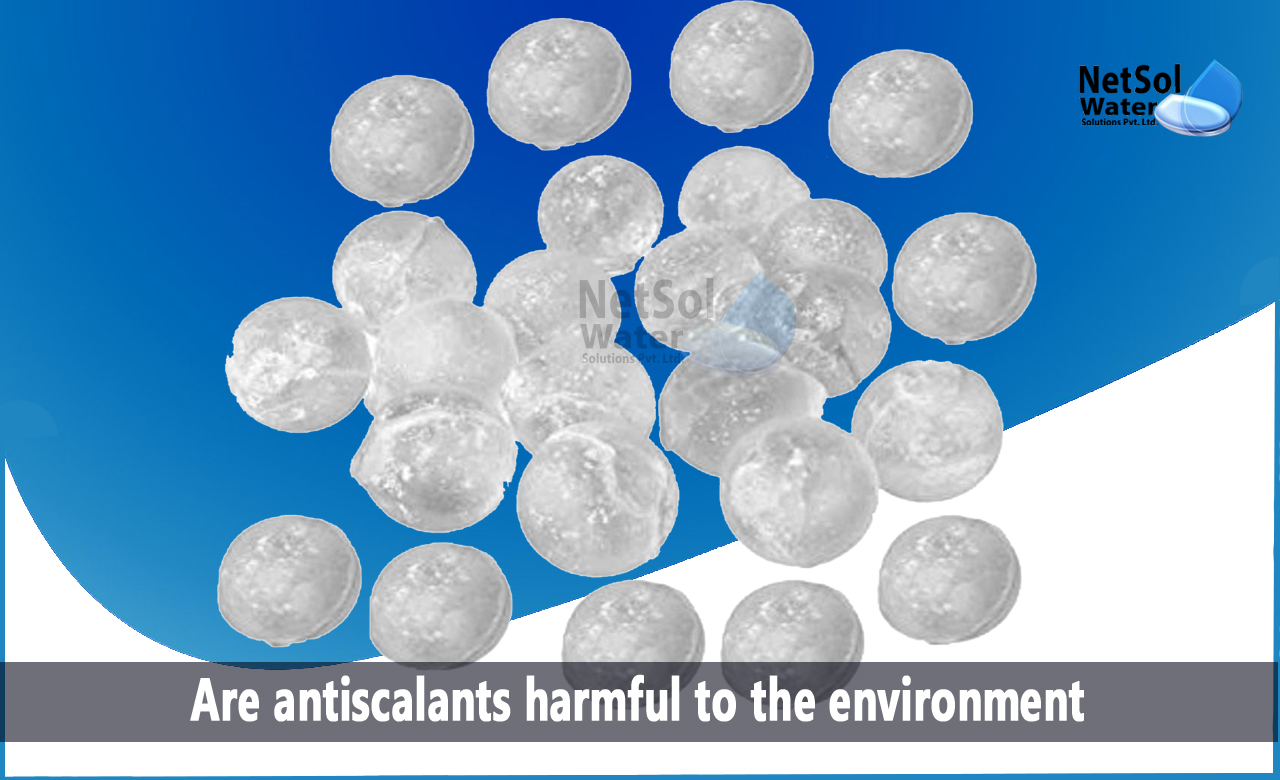Scale inhibitors or antiscalants are typically organic compounds with sulphonates, phosphonate, or carboxylic acid functional groups, and chelating agents like carbon, alum, and zeolites, in order to sequester and neutralize a specific ion that might occur.
Threshold inhibitors are the most common type of scale inhibitors. In order to control hardness (at pH > 6.0) and metallic ion deposits, chelating chemicals like EDTA are also utilized. By becoming absorbed on the scale and generating salt crystals, antiscalants stop mineral scaling by inhibiting the attraction of the supersaturated salt on the crystal surfaces.
We know the never-ending benefits of anti-scalants, but are they harmful to the environment?
What are antiscalants?
For reverse osmosis systems, antiscalant is a water pretreatment additive that is very successful at preventing the membranes from scaling. An antiscalant is added to the feed water and circulated through the system, before the water reaches the reverse osmosis membrane.
Why are antiscalants used in RO Plants?
In order to treat reverse osmosis concentrate and boost overall system recovery, a controlled precipitation phase followed by solid/liquid separation (filtration), has emerged as a promising side-stream treatment method. Antiscalants are added to the RO feed to avoid precipitation, within the membrane systems.
Antiscalant technology for RO systemsinitially evolved from chemistries, used in cooling water and boiler water applications. It should be emphasised that depending on the application and organic polymer utilized, the several distinct antiscalants that have evolved have created a broad variety of effects and efficacy. They must, however, be taken with prudence.
Polyacrylic acid antiscalants
If there are significant amounts of iron, they are prone to the development of a foulant that congregates on the membrane surface. Although, this foulant will require more feed pressure, it can usually be cleaned using a low pH cleaning solution.
Are antiscalants harmful to the environment?
A extremely viscous, sticky foulant that increases feed pressure needs and can be very challenging to remove,and can be formed when a cationic-based coagulant or filtering aid is employed in the pretreatment.
Different antiscalants come in various varieties. Some are polymer-based, while others are phosphonate-based. Many are mixtures to maximize the benefits of the two. If antiscalants were harmful, they would not have been approved for use in potable water applications. Antiscalants based on polymer and phosphonate are both biodegradable over time. As the chemical bonds are disrupted by ultraviolet light, some bacteria create enzymes that break the bonds, and thus the rate of disintegration rises.
Benefits of antiscalants for RO Plants
1: Antiscalant addition boosts incorporation of magnesium and sulphate, into precipitated calcium carbonate while reducing calcium precipitation.
2: Antiscalants stop nucleated precipitates from growing, which leads to the development of both small (100–200 nm in diameter) and large (6–10 micron) particles.
Industrial and Commercial RO Plant Manufacturers
When it comes to providing our customers with a variety of fully-equipped industrial as well as commercial RO plants,with the greatest quality and standards, Netsol Water constantly makes an effort to achieve maximum precision, at an affordable price and high-quality, with the services of installation and the provision of spare parts and antiscalants for RO Plants.
Netsol Water is Greater Noida-based leading water & wastewater treatment plant manufacturer. We are industry's most demanding company based on client review and work quality. We are known as best commercial RO plant manufacturers, industrial RO plant manufacturer, sewage treatment plant manufacturer, Water Softener Plant Manufacturers and effluent treatment plant manufacturers. Apart from this 24x7 customer support is our USP. Call on +91-9650608473, or write us at enquiry@netsolwater.com for any support, inquiry or product-purchase related query.



